Description
Title: Potassium Iodide: Uses, Benefits, and Safety Measures
Introduction
Potassium iodide is a vital and naturally occurring compound, consisting of potassium and iodine elements. This article will delve into the various aspects of potassium iodide, including its applications, health benefits, and safety measures.
Uses of Potassium Iodide
- Medical Uses: Potassium iodide is primarily used in medical settings to: a. Prevent thyroid cancer: In the event of a nuclear accident or attack, potassium iodide can be administered to prevent the accumulation of radioactive iodine in the thyroid gland. b. Treat iodine deficiency: Potassium iodide supplements can help manage conditions related to iodine deficiency, such as goiter and hypothyroidism.
- Industrial Uses: Potassium iodide is also used in various industries for: a. Photography: It serves as a developing agent in photography. b. Catalyst Production: As a reducing agent, potassium iodide is used to produce hydrogen peroxide and other catalysts. c. Water Treatment: It helps remove harmful chlorine from water.
Health Benefits of Potassium Iodide
- Thyroid Health: Potassium iodide is essential for proper thyroid function, as the thyroid gland uses iodine to produce thyroid hormones that regulate metabolism and growth.
- Prevention of Thyroid Cancer: In case of exposure to radioactive iodine, potassium iodide can help prevent the accumulation of radioactive iodine in the thyroid gland, thereby reducing the risk of thyroid cancer.
Safety Measures and Precautions
- Consult a Healthcare Professional: Before starting any potassium iodide supplement, consult a healthcare professional to determine appropriate dosage and ensure there are no potential interactions with other medications or medical conditions.
- Overdose Risks: Excessive intake of potassium iodide can lead to iodine poisoning, characterized by symptoms such as stomach pain, nausea, vomiting, and diarrhea. Seek immediate medical attention if these symptoms occur.
- Allergic Reactions: Individuals with allergies to iodine or seafood should exercise caution when using potassium iodide, as iodine allergies are not uncommon.
- Pregnant and Breastfeeding Women: Potassium iodide can pass through the placenta and into breast milk, so pregnant and breastfeeding women should consult their healthcare providers before taking potassium iodide supplements.
- Monitor Thyroid Function: Long-term use of potassium iodide may lead to thyroid dysfunction, so it’s crucial to monitor thyroid function regularly.
- Drug Interactions: Potassium iodide may interact with certain medications, such as ACE inhibitors, angiotensin receptor blockers, and potassium-sparing diuretics. Disclose all medications to healthcare professionals when discussing potassium iodide use.
Conclusion
Potassium iodide plays a crucial role in maintaining proper thyroid function and overall health, offering numerous benefits when used appropriately. However, it’s essential to adhere to safety measures and precautions, consult healthcare professionals, and be aware of potential risks and interactions. By doing so, individuals can harness the advantages of potassium iodide while minimizing potential harm.


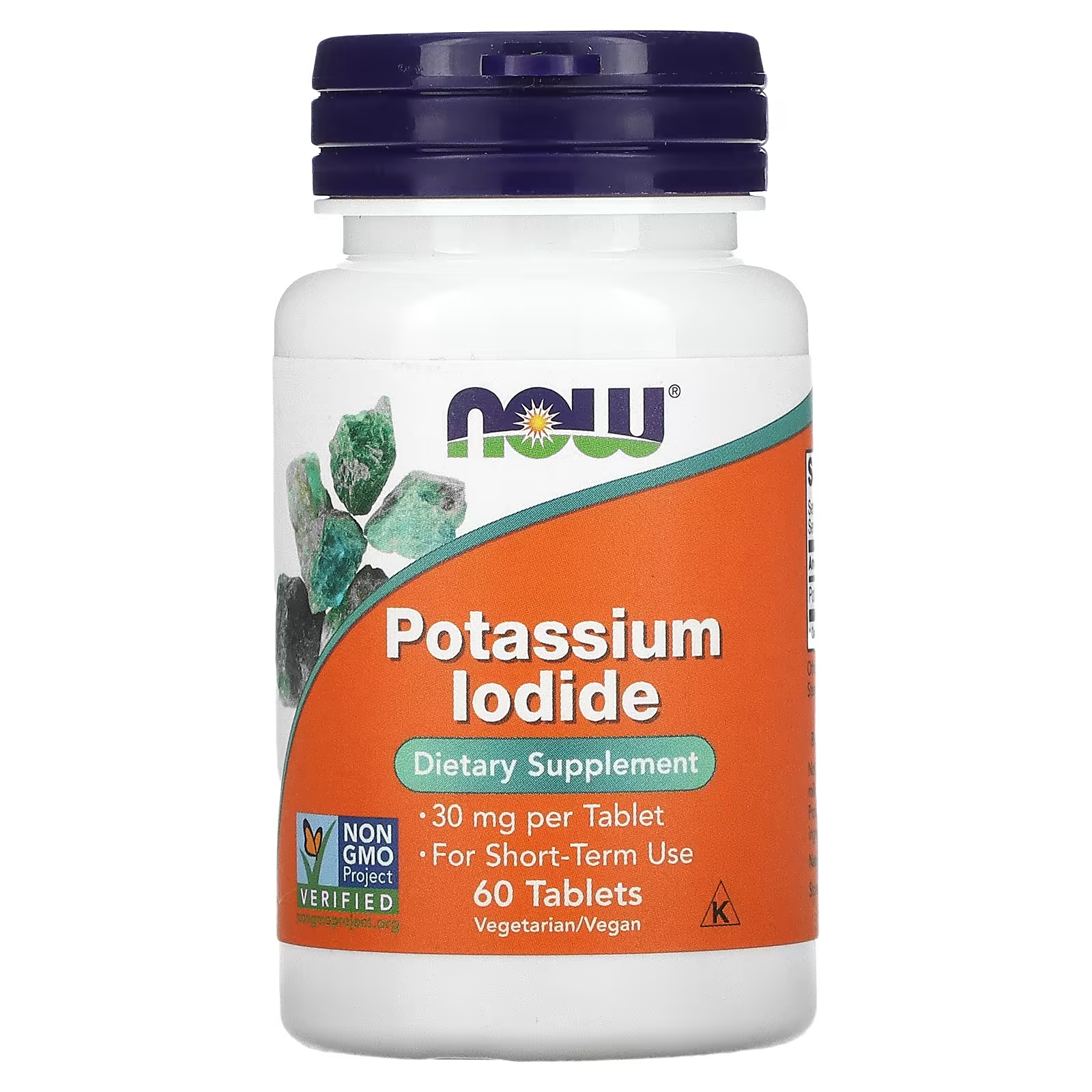


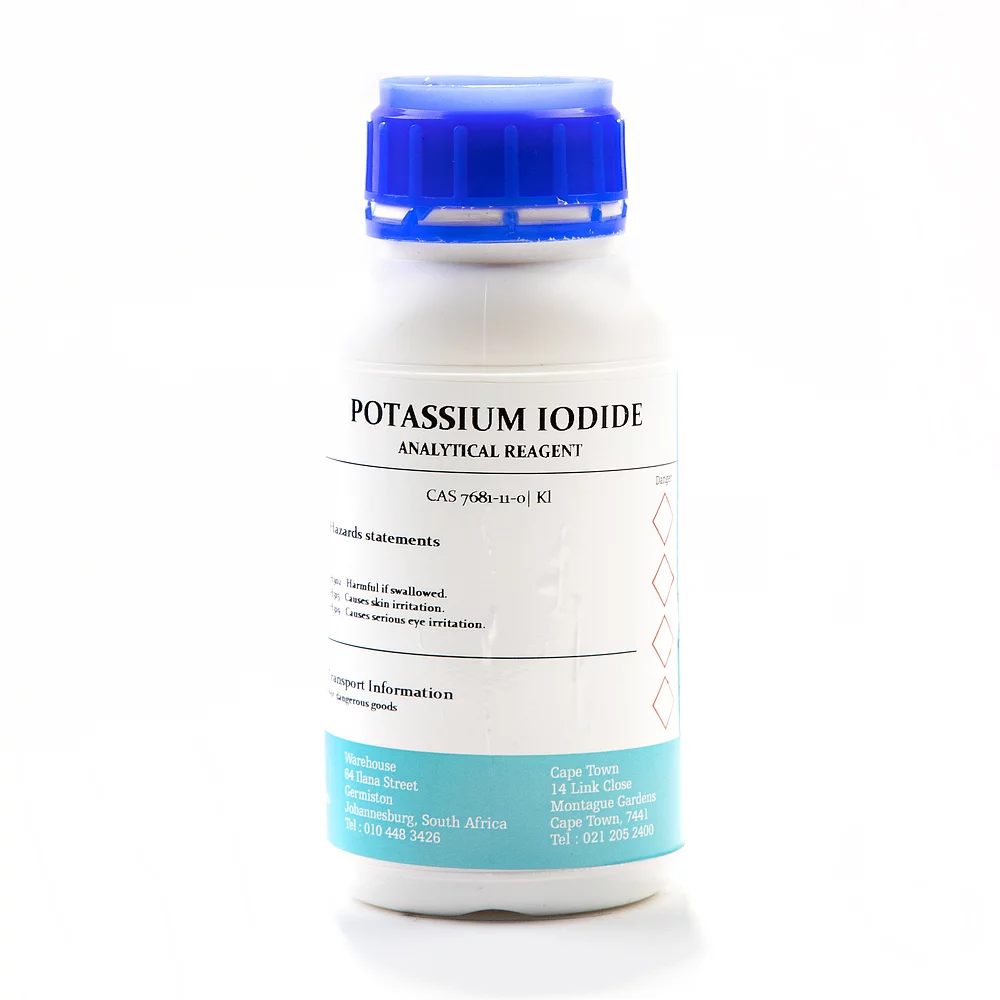
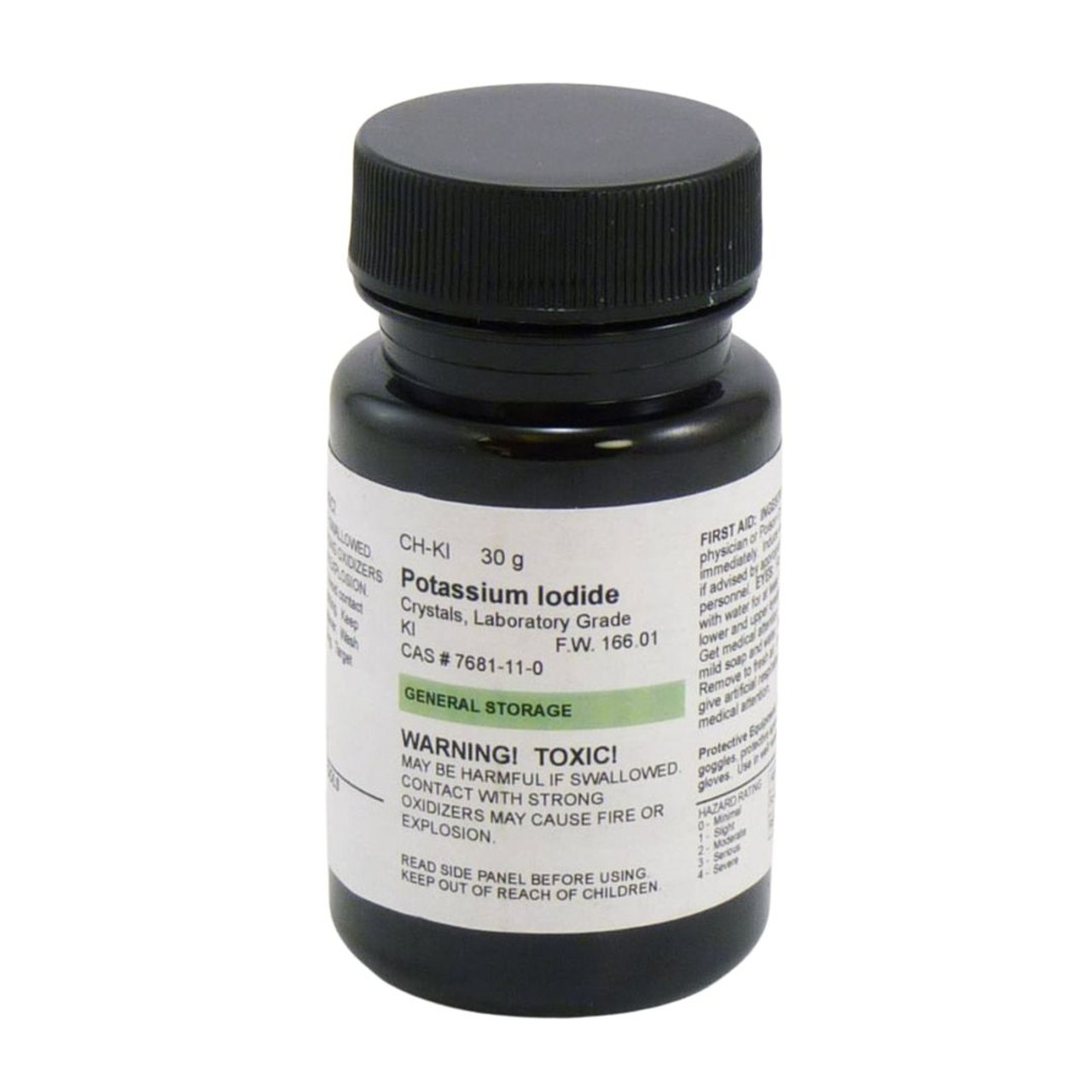
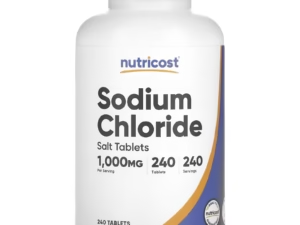

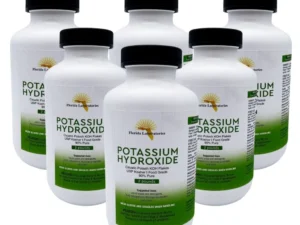

Reviews
There are no reviews yet.